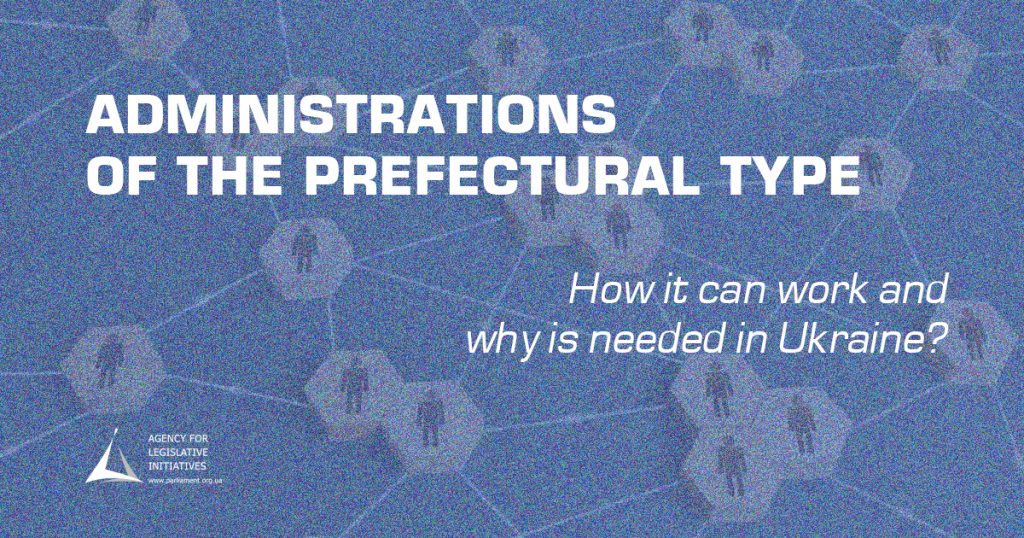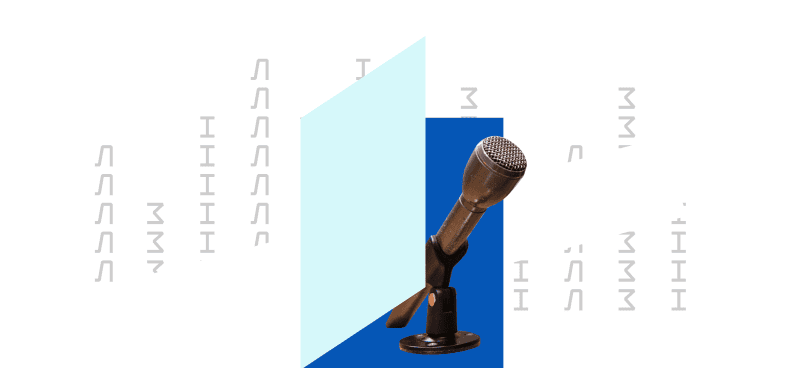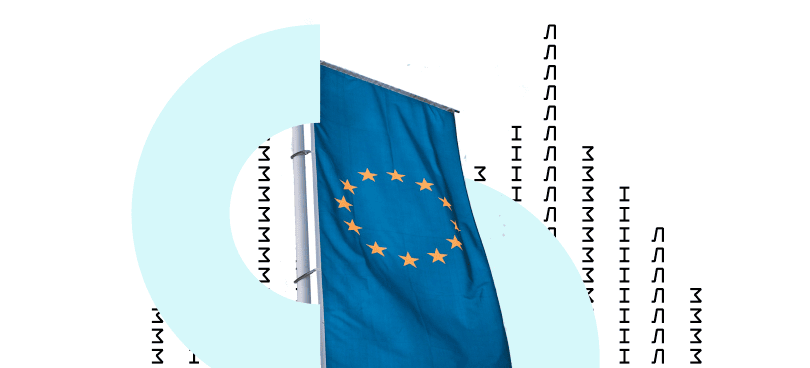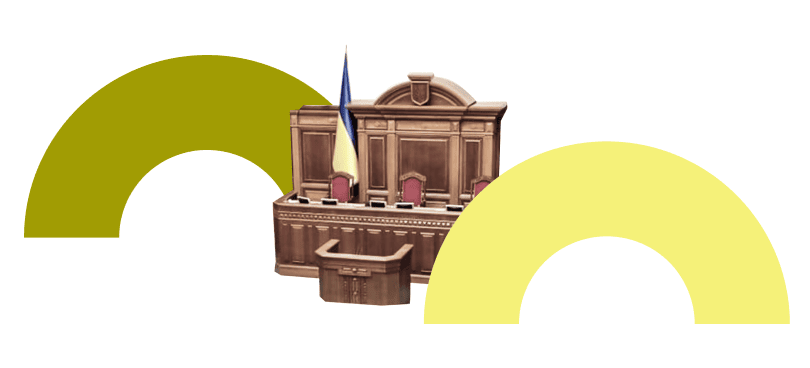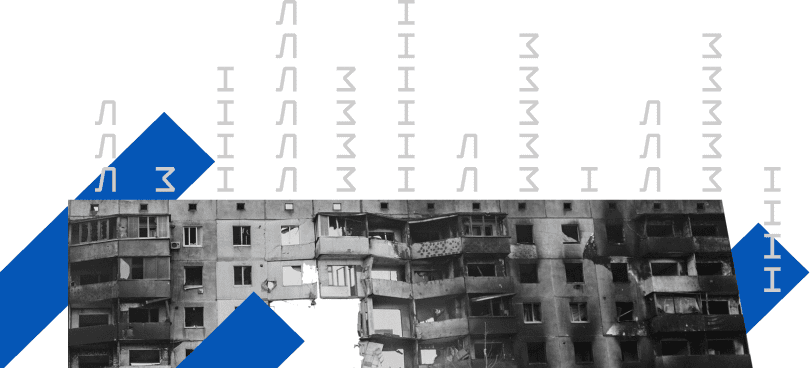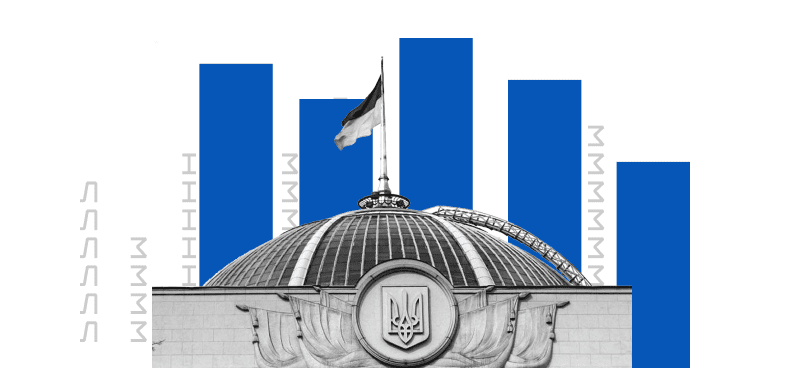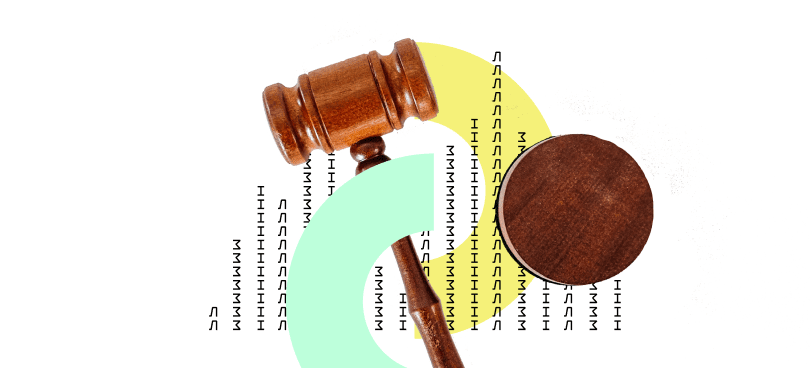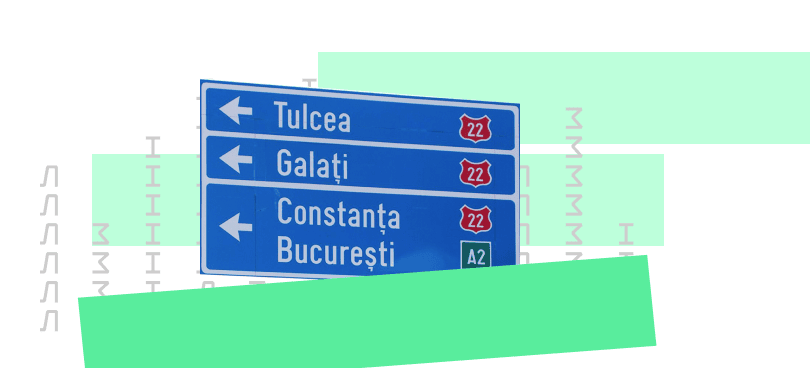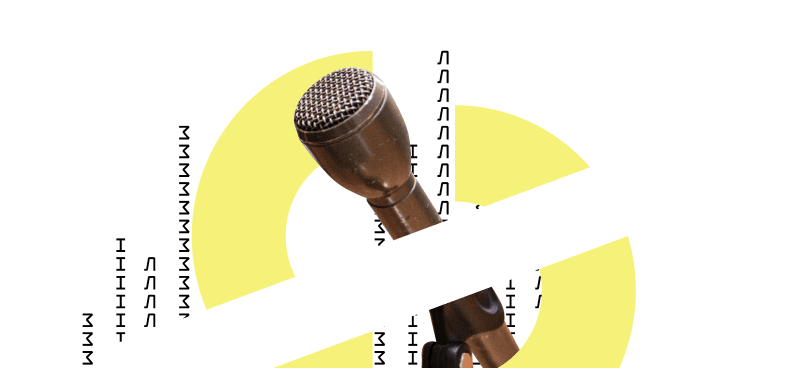By the Agency for Legislative Initiatives for the Decentralisation portal
The introduction of a system to supervise the legality of local self-government bodies’ (LSGBs’) decisions is a vital stage in the decentralisation reform. Although this issue was put on the agenda back in 2015, when the reform was just unfolding, it is still to be resolved.
In 2020, the Verkhovna Rada registered draft law No. 4298 on Amending the Law on Local State Administrations and some other legislative acts of Ukraine to reform the territorial organisation of executive power in Ukraine and passed it in the first reading. However, Russia’s full-scale invasion into Ukraine delayed the consideration of this draft law since all efforts have focused on regulating military issues in the legal framework. So, what is supervision of the legality of LSGBs’ decisions, and why is important for continuing the decentralisation reform? We will tell further.
Decentralisation as a reform of democratic governance concerns transferring most of the powers to the local level to specific communities. Accordingly, the effective implementation of the reform cannot occur without the interaction of public authorities and local self-governments since all levels of authorities constitute a single system of public bodies that govern society. It is quite sensible when the state responds to potential violations at any level of government. For example, they include illegal decisions that threaten Ukraine’s sovereignty or decisions that do not fall into the scope of constitutionally enshrined powers. To that end, a system is established to supervise the legality of decisions.
International experiences and Ukraine
There is a legislated system of administrative supervision in European countries that have successfully implemented decentralisation reforms. These are France, Germany, Denmark, Italy, and others. Naturally, there is no universal model of how supervision should take place or how state and local authorities should interact. Each country builds up its line depending on the model of local self-government, the form of government, political system, the capacity of communities and/or regions. The number of supervising institutions (one or more), subordination of the supervisory institution (to a central body or regional body), the authorities of the supervisory institution (go to court, suspend LSGBs’ decisions, overturn decisions, impose sanctions, recommend to change/improve acts that enact the decisions) depend on these factors.
Administrative supervision aiming to ensure legal compliance is also spelled out in the European Charter of Local Self-Government (Article 8). No provision of the Charter obliges central authorities to set up a vehicle for administrative supervision (including one for supervision of legality), but according to the Council of Europe’s findings, Ukraine is the only European country that has not legislated a system to supervise local self-government bodies.
In Ukraine, until 2016, the role of the “watchdog” over the legality of LSGB’s decisions was performed by the prosecutor’s offices, then the reform of the prosecutor’s office largely narrowed their powers. And as the positions of stakeholders (representatives of local self-government bodies, central authorities) confirm, the reform of the prosecutor’s offices is advantageous for decentralisation, given that supervision was carried out by the prosecutor’s offices chaotically and unsystematically, oftentimes the prosecutor’s offices used the supervisory function as a manipulative tool, which elevated corruption risks.
Thus, in 2016, a ‘legal vacuum’ was created and still exists in the system to supervise the legality of decisions. The lack of a regulated system for interaction between state and local authorities results in the following problems:
- The risks of state authorities’ excessive interference into the work of local self-government bodies elevate;
- The probability of illegal decisions being made at the level of local self-government bodies increases.
How is it proposed to address these problems in Ukraine?
In general, the supervision system defines a procedure to monitor local self-government bodies’ decisions and respond to those that are illegal or do not comply with the Constitution of Ukraine. Examples include violations of the territorial integrity of Ukraine, the language agenda, cooperation with the aggressor state, etc. Supervision of the legality of decisions does not concern control over the activities of local self-government bodies and the expediency of decision-making. In other words, it is for the community to resolve independently the issues of local importance (dealing with land, provision of necessary services, infrastructure and urban development, etc.).
Regulation of the system to supervise the legality of local self-government bodies’ decisions has been debated since 2015. It was then that changes dealing with decentralisation were proposed to the Constitution of Ukraine, with the institution of the prefect being put forward. This institution was supposed to represent the state on the ground. However, the process of consideration of the draft halted in the first reading. Moreover, it led to human casualties near the Verkhovna Rada. The draft norm on the “peculiarities of exercising local self-government in certain districts of Donetsk and Luhansk regions” caused protests.
The second attempt at changes focused on decentralisation was made in 2019. The first version of the Presidential proposals was immediately criticised because the spelt-out powers of prefects were too broad. In 2020, a second set of amendments to the Constitution was ironed out at the central and regional levels, and discussions lasted in the expert community. That draft was finalised, a political consensus was reached eventually, and international partners responded positively to it. However, under martial law now, these Constitutional amendments dealing with decentralisation may not be approved at the national level.
The only and transitional solution to the problem is the adoption of a draft law that would legislate the issue of supervising the legality of decisions. In 2020, draft law No. 4298 On Amending the Law of Ukraine on Local State Administrations and some other legislative acts of Ukraine to reform the territorial organisation of executive power in Ukraine was registered, which provides a vehicle for supervision until the Constitution is amended.
The draft law proposes to consolidate prefectural powers within local state administrations (regional and district ones), which are local executive bodies. It stipulates two prefectural tools for local state administrations to ensure the legality of the decisions:
- A demand to eliminate a violation of legality;
- Going to court with a claim to invalidate an act of the local self-government body.
That is, where local self-government bodies have failed to satisfy the demand to eliminate the violation of legality, the local state administrations will have the right to sue.
The lawmakers propose the following system of supervision: a regional state administration supervises the legality of the decisions of district councils, and a district state administration supervises those of village, town and city councils. Furthermore, local self-government bodies are given the opportunity to receive advice from the local state administration. That is, the supervision system would act as a preventive mechanism, since the advice-seeking possibilities would minimise the risks of making illegal decisions.
Currently, the ultimate version of the draft law is being finalised in a parliamentary committee. Its adoption in the near future is expected to legislate the system of supervision of the legality of local self-government bodies’ decisions.
What is the position of stakeholders on this issue?
Representatives of local self-government bodies and experts note that establishing a clear system of supervision will be able to solve the following problems:
- Abuse of powers and making illegal decisions at the local level.
- Uneven distribution of functions at different levels of government. This concerns the work of regional and district state administrations, whose tasks currently overlap.
- Regional administrations’ interferences in the work of local self-government bodies. Until now, in some communities, representatives of the regional state administration try to maintain powers on the ground, centrally manage the distribution of funds and influence the community’s decisions on the implementation of projects.
This is why a transparent and clear system should be set up to supervise the legality of decisions and the on-the-ground interaction of state authorities with local self-government bodies should be established. This framework should be based on the following pillars:
Transparent judicial procedure. This refers to fair justice when a decision on the illegality of the LSGB’s act will accord with all constitutional norms and not the standpoints of some individuals.
There should be the right to appeal. The entities should be designated to respond to alleged violations and submit complaints to court. These entities should promptly respond to specific issues associated with the sovereignty and state integrity of Ukraine, and judicial bodies should quickly overturn the acts in question.
The system of supervision should be accessible and informative for all those living in the community. All entities, including businesses, should be informed about the system of supervision, its necessity and the consequences of making illegal decisions. The community manages its areas, but oftentimes decisions are made in the interests of specific individuals, not of the community as a whole (for example, some land is allocated for the construction of a church building, yet a multi-story building emerges as a result). Thus, all the entities concerned should be held accountable for illegal schemes.
Illegal decisions are to be overturned by judicial bodies rather than heads of state administrations. Local state administrations’ devotion and loyalty to some communities can affect their decisions in monitoring LSGBs’ acts. Therefore, heads of state administrations can suspend illegal decisions and give recommendations, communities can review them, but only judicial bodies may overturn them.
Supervision should remain at the level of regional administrations. This is argued by the need to select supervisory bodies according to certain procedures that will establish their expertise and integrity. From this perspective, it would be more rational to select and train 24 heads of administrations than to spend resources on creating supervisory bodies also in each district (there is an average of 5 districts in each region). This is important for supervisory bodies not to be pro forma, dual superstructures, but rather effectively fulfil their functions. Instead, today district administrations are some sort of branches of the regional state administrations, and their functions overlap. Furthermore, experts note that the district state administrations can serve as a tool for the regional state administrations, and there is a risk that the latter would expand their might locally and continue the old practice that prevailed before the consolidation of communities.
The possibility for local self-government bodies to seek advice. There should be a clear timeframe for potential errors to be corrected at the level of LSGBs in case illegal decisions are found. This includes the possibility to seek advice where local self-government bodies have that need. Decisions should be overturned if comments/recommendations have not been taken onboard.
Introduce categories of decisions to be overturned on the day of their adoption. This is important for the state security of Ukraine. Those categories should deal with such issues as separatism, collaborationism, the agenda of the state language, national borders, etc.
It is necessary to categorise and systematise the areas of decisions that are to be checked. This is because there is an environmental office, a tax office, which also supervise. In addition, there is a treasury body that checks documents regarding budget funds and legislative requirements.
A certain level of expertise should be ensured for monitoring and assessing LSGBs’ decisions. When the prefect supervises, candidates for their office should be assessed for the availability of necessary skills as part of the selection process. The prefecture must have a scientific and advisory board that will analyse the decisions for their compliance with the law.
Clear grounds should be prescribed for supervision and monitoring of decisions. This is necessary in order to avoid usurpation of power by the administrations on the ground, as there are risks that the administration would abuse the powers and review LSGBs’ decisions of the prior years, trying to deliberately hold a certain community accountable.
In lieu of conclusions
So, a clear system to supervise the legality of decisions is both a vehicle to prevent violations locally and a protection for local self-government bodies. Stakeholders are on the same page that, first, the supervision will be sending a message both to the representatives of local self-government bodies and to the supervisory authorities. This is because the responsibility of all bodies in case of malicious violations will be clearly established. Second, the system of supervision will minimise the risks of corruption and illegal decision-making by local self-government bodies. After all, the representatives of LSGBs will have a chance to receive advice from the supervisory authorities.
For the local state administrations as a supervisory body, the system of supervision is, on the one hand, an understanding that their functions are primarily of supervisory and control nature. On the other hand, the fact that they are civil servants, representatives of the state, and not of a political force. Responsibility would be introduced for interference into the work of local self-government bodies. On Ukraine’s path to the EU, the establishment of such norms is relevant and important from the perspective of the fight against corruption.
In general, most of the standpoints expressed by the stakeholders are spelled out in the current version of draft law No. 4298, including the possibility of advice and recommendations for LSGBs, decisions overturning in court, the designated supervisory body (in this case, it is the local state administration). As a result, this means that the draft law is vital for the public.
However, some of its parts need to be refined, especially so the issue of professionalisation of the supervisory body, which, among other things, was emphasised by the stakeholders. Assessing the compliance of local self-government bodies with laws and the Constitution requires an appropriate level of expertise.
Analysis methodology
This research was conducted in two phases:
1st phase – legislation and legislative initiatives, international documents (Constitution of Ukraine, Law on Local Self-Government in Ukraine, Law on Local State Administrations, draft law No. 4298 on Amending the Law of Ukraine on Local State Administrations and Some Other Legislative Acts of Ukraine to Reform the Territorial Organisation of Executive Power in Ukraine, European Charter of Local Self-Government) were analysed; secondary sources of information were analysed regarding international experiences with the system of supervision of the legality of LSGBs’ decisions.
2nd phase – semi-structured in-depth interviews were held with 12 LSGBs’ representatives (heads of city, town and village councils), 7 experts (MPs, experts in various fields of the decentralisation reform).
This material was prepared with the financial support of Sweden.

